Filter by
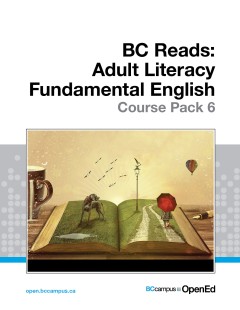
Adult Literacy Fundamental English : Course Pack 6
Overview: This course pack is designed to meet the learning outcomes for Adult Literacy Fundamental English Level 6 (roughly equivalent to grades 7.5 to 9 in the K-12 system). Every chapter includes a level-appropriate, high-interest reading of between 500 and 1,000 words. The readings are freely available in a separate reader with convenient links to the readings.
- Edition
- -
- ISBN/ISSN
- -
- Collation
- -
- Series Title
- -
- Call Number
- 420 IVI a
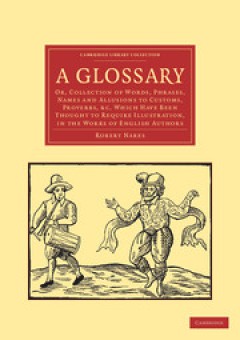
A Glossary Or, Collection of Words, Phrases, Names and Allusions to Customs,…
Originally published in 1822, Robert Nares' glossary of antiquated Elizabethan terms is the result of a personal interest in and love of Elizabethan literature. Nares (1753–1829), well known as a scholar and clergyman, was also a keen philologist and antiquary. This glossary was undertaken in his spare time, and compiled over forty years as he was often occupied with various academic and cler…
- Edition
- -
- ISBN/ISSN
- 9781139093781
- Collation
- -
- Series Title
- Cambridge Library Collection - Literary Studies
- Call Number
- -
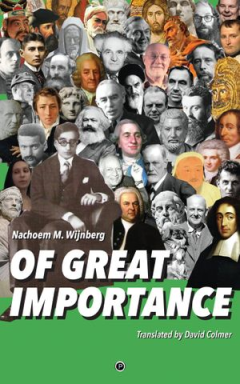
Of Great Importance
Of Great Importance is Nachoem Wijnberg’s 16th volume of poetry. One of the most prominent living Dutch writers,
- Edition
- -
- ISBN/ISSN
- 9781947447486
- Collation
- -
- Series Title
- -
- Call Number
- 821
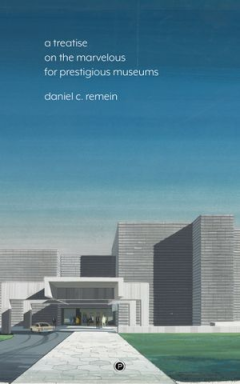
Treatise on the Marvelous for Prestigious Museums
Wrapped in modernist architect Marcel Breuer’s 1971 addition to the Cleveland Museum of Art, A Treatise on the Marvelous for Prestigious Museums considers the global ecological catastrophe by way of a speculative address to the art museums of the future, revisiting mid-century modes of site-specificity and speculative collage as utopian practices for the present.
- Edition
- -
- ISBN/ISSN
- 9781947447592
- Collation
- -
- Series Title
- -
- Call Number
- 821

A Dictionary of the Suahili Language With Introduction Containing an Outline…
Johan Ludwig Krapf (1810–81), a German-born member of the Church Missionary Society in East Africa, is regarded as the founder of Swahili studies in Europe. Having pursued an interest in Oriental culture from an early age, he first went to Abyssinia (Ethiopia) as a missionary. During his travels in Africa, he became the first European to see Mount Kenya; but he also considered the potential o…
- Edition
- -
- ISBN/ISSN
- 9781139207126
- Collation
- -
- Series Title
- Cambridge Library Collection - Linguistics
- Call Number
- -
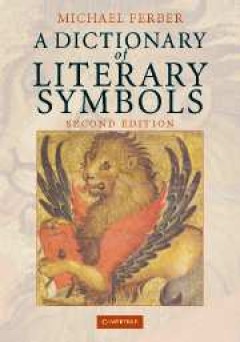
A Dictionary of Literary Symbols
This is the first dictionary of symbols to be based on literature, rather than 'universal' psychological archetypes or myths. It explains and illustrates the literary symbols that we all frequently encounter (such as swan, rose, moon, gold), and gives hundreds of cross-references and quotations. The dictionary concentrates on English literature, but its entries range widely from the Bible and c…
- Edition
- -
- ISBN/ISSN
- 9780511481475
- Collation
- -
- Series Title
- -
- Call Number
- -
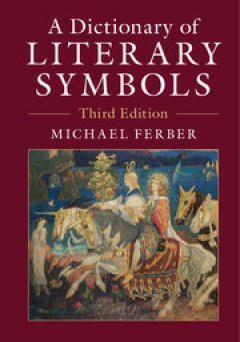
A Dictionary of Literary Symbols
This is an expansion of the first dictionary of symbols to be based on literature, rather than on 'universal' psychological archetypes or myths. It explains and illustrates the literary symbols that we frequently encounter (such as swan, rose, moon, gold) and gives thousands of cross-references and quotations. The dictionary concentrates on English literature, but its entries range widely from …
- Edition
- -
- ISBN/ISSN
- 9781316771426
- Collation
- -
- Series Title
- -
- Call Number
- -
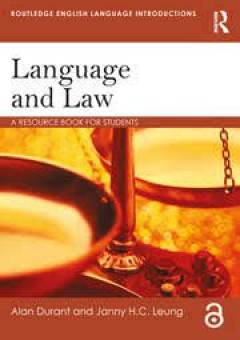
Language and Law A resource book for students
Language plays an essential role both in creating law and in governing its implementation. Providing an accessible and comprehensive introduction to this subject, Language and Law:describes the different registers and genres that make up spoken and written legal language and how they develop over time; analyses real-life examples drawn from court cases from different parts of the world, illustr…
- Edition
- -
- ISBN/ISSN
- 9781138025585
- Collation
- -
- Series Title
- -
- Call Number
- -
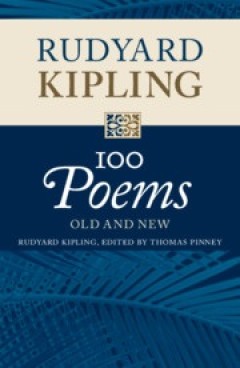
100 Poems: Old and New
Rudyard Kipling (1865–1936), winner of the 1907 Nobel Prize for Literature and author of one of the most popular poems in the English language, 'If–', has long captured the interest of poetry lovers. Here, Thomas Pinney brings together a selection of well-established favourites and the best of the previously uncollected and unpublished poems from The Cambridge Edition of the Poems of Rudyar…
- Edition
- -
- ISBN/ISSN
- 9781107279513
- Collation
- -
- Series Title
- -
- Call Number
- -
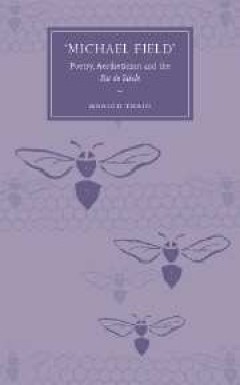
Michael Field': Poetry, Aestheticism and the Fin de Siècle
'Michael Field' (1884–1914) was the pseudonym of two women, the aunt and niece Katharine Bradley and Edith Cooper, who lived and wrote together as 'lovers'. The large oeuvre contains poems, dramas, and a vast diary. Marion Thain recounts the development of a fascinating and idiosyncratic poetic persona, which became a self-reflexive study in aestheticism. The constructed life and work of 'Mic…
- Edition
- -
- ISBN/ISSN
- 9780511484933
- Collation
- -
- Series Title
- -
- Call Number
- -
 Computer Science, Information & General Works
Computer Science, Information & General Works  Philosophy & Psychology
Philosophy & Psychology  Religion
Religion  Social Sciences
Social Sciences  Language
Language  Pure Science
Pure Science  Applied Sciences
Applied Sciences  Art & Recreation
Art & Recreation  Literature
Literature  History & Geography
History & Geography